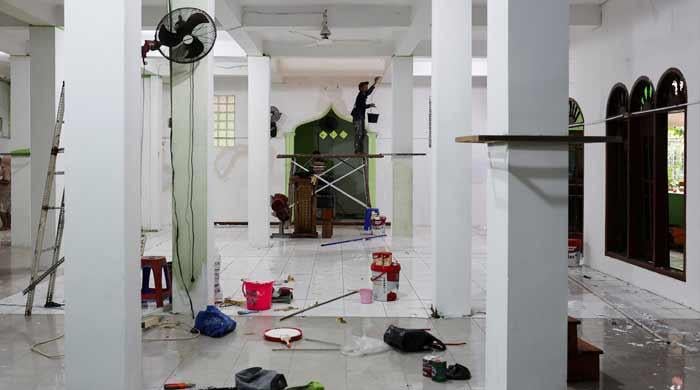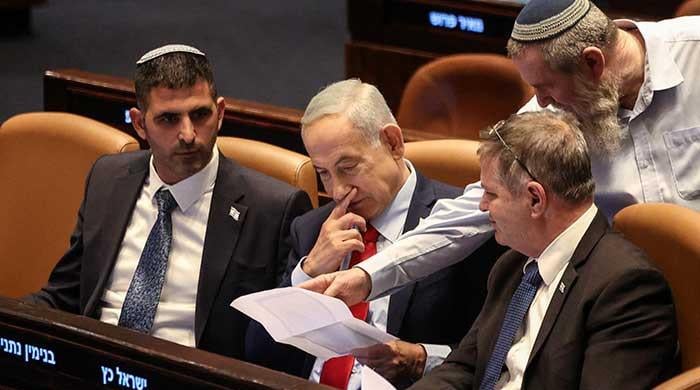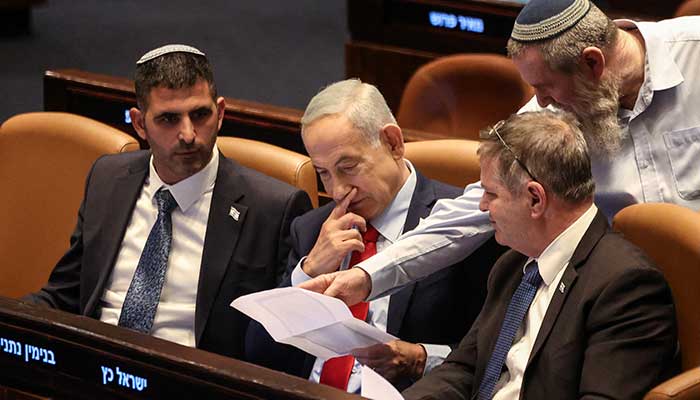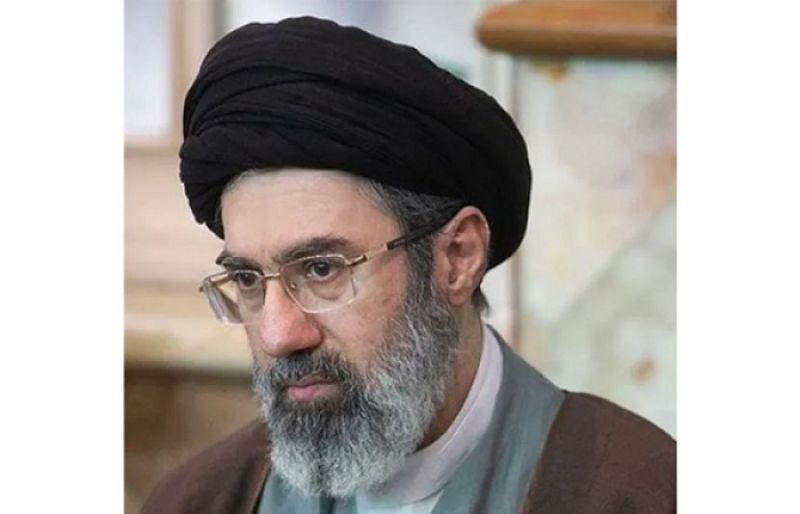Politics
Indonesia probes student after nearly 100 hurt in school blasts


- Blasts hit school mosque during Friday prayers gathering.
- Investigators examine suspect’s family, social media.
- Twenty-nine victims remain hospitalised, with two in ICU.
Indonesian authorities said on Saturday they were investigating a student over their alleged involvement in explosions that wounded nearly 100 people at a school in the capital Jakarta.
The blasts hit a school mosque in North Jakarta just as people were gathering for Friday prayers, sparking panic among worshippers.
The national police chief said investigators had gathered “several pieces of evidence” as part of their probe.
“There’s writing, and there is also evidence of powder that could potentially have caused an explosion,” Listyo Sigit Prabowo said in comments broadcast by Kompas TV.
Authorities so far have identified one suspect, a student who was wounded in the explosions, but Listyo did not rule out the involvement of others.
Investigators are also examining the suspect’s family and social media, the police chief added.
Ninety-six people were wounded in the incident, Listyo said, revising the police’s earlier casualty figure of 54.
Twenty-nine victims remain hospitalised, including at least two in intensive care, he said.
Mayndra Eka Wardhana, spokesman for the counter-terrorism police unit Densus 88, told AFP that investigators had searched the suspect’s home.
He added that they were still probing the motive behind the incident.
A witness told AFP there was confusion over what happened.
“At first we thought it came from some electronic equipment, maybe the sound system… but it turned out the explosion came from under the prayer mat,” Kinza Ghaisan Rayyan, a 17-year-old student, said on Friday.
Politics
Netanyahu’s political future at stake with Iran war: experts


With elections approaching in Israel, the war with Iran has handed Prime Minister Benjamin Netanyahu an opportunity to restore an image deeply scarred by October 7, 2023 Gaza attack, experts say.
But any political dividend would depend on how the conflict unfolds and how long it lasts, they say.
A day after Iran’s supreme leader Ayatollah Ali Khamenei was martyred in a wave of US-Israeli strikes, Netanyahu said that his close ties with Washington had enabled Israel to “do what I have long aspired to do for 40 years: to strike the terrorist regime decisively”.
The Gaza war eroded Netanyahu’s popularity. Critics have accused him of seeking to evade responsibility for the authorities’ failure to prevent the deadliest day in Israel’s history.
At 76, the leader of the right-wing Likud party is Israel’s longest-serving prime minister, with more than 18 cumulative years in office across multiple stints.
Known for his political resilience, Netanyahu has been without a parliamentary majority since the summer, amid a crisis with his ultra-Orthodox religious allies.
He is also standing trial in a long-running corruption case and has sought a presidential pardon, with US President Donald Trump repeatedly pressuring President Isaac Herzog to grant one.
‘Total victory’
Elections must be held by October 27 at the latest.
Netanyahu will call early elections, says Emmanuel Navon, a political analyst at Tel Aviv University.
“It’s obvious. He won’t wait until October given the commemoration of the October 7 anniversary,” Navon said.
“If Netanyahu was at rock bottom after the Gaza attack, he has since gradually turned the tide,” he added.
A Likud party led by Netanyahu would emerge ahead in elections held today, opinion polls suggest.
That would likely see him tasked with forming the next government, though he would still lack a majority with his current allies.
A victory over Iran could change that calculus, experts say.
“This offensive undeniably reinforces the image Netanyahu seeks to cultivate, the one associated with his ‘total victory’ slogan,” independent geopolitical analyst Michael Horowitz told AFP.
“Netanyahu wants to show that this is not a campaign slogan but a reality. It is his national agenda and his electoral strategy,” he added.
‘Iran remains Iran’
Raviv Druker, a prominent journalist on Channel 13 television, argued that Netanyahu “will try to convince people that the victory is total even if that is an illusion,” noting that “Hamas still runs Gaza, and Iran remains Iran even after Saturday’s strike”.
On the popular news website Walla, journalist Ouriel Deskal went further, suggesting Netanyahu may have chosen the timing of the hostilities to automatically delay — under a state of emergency — the March 30 deadline for passing a budget for which he has struggled to secure a majority.
Without a budget, the government would fall on April 1 and elections would be called.
In that scenario, Netanyahu would enter the campaign from a position of weakness.
By contrast “if this war against Iran is a success for Israel, it will be a political victory for Netanyahu,” Navon said.
But should the war drag on, the picture could shift dramatically, Horowitz warned.
“Public tolerance for a long war with heavy casualties, combined with a high cost of living, remains extremely low,” he said.
During the war last June, Iranian missiles killed 30 people in Israel. Since Saturday, 10 people have been killed in Iran’s retaliatory strikes.
“Israel’s victories are primarily attributed to the army and to civilian resilience, which enabled the country to wage the longest war in its history,” Horowitz noted.
“The army’s popularity is rising, not necessarily Netanyahu’s.”
Politics
UAE Says Airspace Will Not Be Used for Attacks on Iran


UAE says it will not allow its airspace to be used for attacks against Iran, announces security and economic measures amid regional tensions.The United Arab Emirates has announced it will not allow its airspace or territory to be used for attacks against Iran, as officials outlined security, economic and humanitarian measures during a media briefing in Abu Dhabi.
Reem Al Hashimy, Minister of State for International Co-operation, said the UAE’s position was “clear and measured.”
“The UAE will not permit its airspace or land to be used in any attack against Iran,” she said, adding that the country reserves the right to defend its sovereignty and ensure the safety of citizens, residents and visitors.
She also confirmed that the UAE had closed its embassy in Tehran and withdrawn its ambassador following recent Iranian attacks.
High Combat Readiness
Major General Abdul Nasser Al Humaidi, spokesperson for the Ministry of Defence, said the UAE would not tolerate any compromise of its sovereignty or security.
He explained that sounds heard in recent days were due to missile interceptions and confirmed that armed forces remain at a high level of combat readiness. The UAE, he said, possesses sufficient strategic defence reserves to counter aerial threats for an extended period.
Economic Measures & Supplies
On the economic front, Abdulla bin Touq Al Marri, Minister of Economy and Tourism, said the country holds strategic reserves of essential goods sufficient for four to six months.
“There is no risk of shortages,” he said, adding that authorities are monitoring markets to prevent unjustified price increases and urging residents to avoid panic buying.
He also announced that around 80 flights per day would operate during the current phase to facilitate travel for those wishing to leave.
Daily Life Continues
The National Emergency Crisis and Disaster Management Authority (NCEMA) said daily life across the UAE continues as normal, with essential services fully operational.
The statements come amid heightened regional tensions, as Gulf countries navigate security concerns while seeking to maintain stability at home.
Politics
Iranian Media Says Mojtaba Khamenei Alive, Dismisses Death Claims


Iranian media has claimed that Mojtaba Khamenei, son of Supreme Leader Ali Khamenei, is alive and in good health, dismissing earlier foreign media reports that suggested he had been killed.
According to Iranian outlets, Mojtaba Khamenei has fully recovered and is currently overseeing key state affairs. The reports reject claims that he was killed alongside his father during recent airstrikes.
Strikes on Iran
On Saturday, Israel and the United States reportedly carried out coordinated strikes across Iran, targeting multiple locations.
Iranian media stated that:
-
The office compound of Ayatollah Ali Khamenei was struck.
-
The building of the Assembly of Experts in Qom was bombed.
-
Explosions were also reported near Enghelab Square in Tehran.
The Assembly of Experts is the clerical body responsible for appointing Iran’s Supreme Leader.
Conflicting Reports
While foreign media earlier claimed Mojtaba Khamenei had been killed, Iranian state-linked sources have strongly denied those reports. Independent verification of the claims remains limited amid ongoing hostilities and restricted information flow.
The situation continues to evolve as regional tensions remain high.
-

 Politics6 days ago
Politics6 days agoWhat are Iran’s ballistic missile capabilities?
-

 Politics6 days ago
Politics6 days agoUS arrests ex-Air Force pilot for ‘training’ Chinese military
-

 Business1 week ago
Business1 week agoHouseholds set for lower energy bills amid price cap shake-up
-

 Sports1 week ago
Sports1 week agoTop 50 USMNT players of 2026, ranked by club form: USMNT Player Performance Index returns
-

 Business5 days ago
Business5 days agoAttock Cement’s acquisition approved | The Express Tribune
-

 Sports6 days ago
Sports6 days agoSri Lanka’s Shanaka says constant criticism has affected players’ mental health
-

 Business1 week ago
Business1 week agoLucid widely misses earnings expectations, forecasts continued EV growth in 2026
-

 Fashion5 days ago
Fashion5 days agoPolicy easing drives Argentina’s garment import surge in 2025






